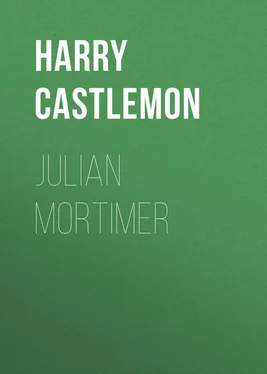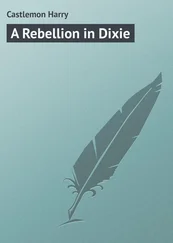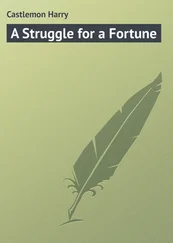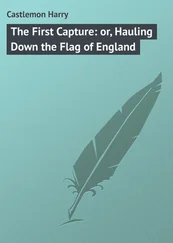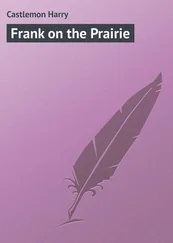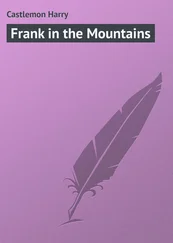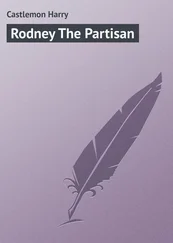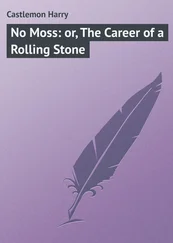Harry Castlemon - Julian Mortimer
Здесь есть возможность читать онлайн «Harry Castlemon - Julian Mortimer» — ознакомительный отрывок электронной книги совершенно бесплатно, а после прочтения отрывка купить полную версию. В некоторых случаях можно слушать аудио, скачать через торрент в формате fb2 и присутствует краткое содержание. Жанр: foreign_prose, foreign_language, на английском языке. Описание произведения, (предисловие) а так же отзывы посетителей доступны на портале библиотеки ЛибКат.
- Название:Julian Mortimer
- Автор:
- Жанр:
- Год:неизвестен
- ISBN:нет данных
- Рейтинг книги:4 / 5. Голосов: 1
-
Избранное:Добавить в избранное
- Отзывы:
-
Ваша оценка:
- 80
- 1
- 2
- 3
- 4
- 5
Julian Mortimer: краткое содержание, описание и аннотация
Предлагаем к чтению аннотацию, описание, краткое содержание или предисловие (зависит от того, что написал сам автор книги «Julian Mortimer»). Если вы не нашли необходимую информацию о книге — напишите в комментариях, мы постараемся отыскать её.
Julian Mortimer — читать онлайн ознакомительный отрывок
Ниже представлен текст книги, разбитый по страницам. Система сохранения места последней прочитанной страницы, позволяет с удобством читать онлайн бесплатно книгу «Julian Mortimer», без необходимости каждый раз заново искать на чём Вы остановились. Поставьте закладку, и сможете в любой момент перейти на страницу, на которой закончили чтение.
Интервал:
Закладка:
“No, I don’t,” replied Julian. “I never ran a race with you in my life. I never saw you until to-night.”
“Didn’t! Wol, I’ve seed you a good many times durin’ the last two months, an’ have talked with you, too; but I was dressed up like a gentleman then, an’ mebbe that’s the reason you don’t recognize me now. Dick thinks he knows more about you than anybody else, but I reckon he don’t.”
“Who is Dick?” asked the boy.
“He’s the feller who was talkin’ to me to-night while you were settin’ in that wagon listenin’ to us. I didn’t know you were about thar until Dick had gone back into the camp, an’ then I seed you come down from the wagon. I wanted to get you away from thar, ’cause I was afeared that if you were in the camp durin’ the fight some of the Injuns might send a ball or arrer into you, an’ that would have been bad fur me an’ my mates, ’cause it would have tuk jest $5,000 out of our pockets. I didn’t see no chance to slip up an’ make a pris’ner of you without alarmin’ the emigrants, so I come back here an’ got one of my men, an’ me an’ him made up that story we told you. It worked first-rate, didn’t it.”
“But you have not yet told me who Dick is,” said Julian, without answering the outlaw’s question. “How did he become acquainted with me; and what reason has he for wishing me put out of his way? I heard him say that he would give you a thousand dollars if you would kill me.”
“Them’s his very words. But you needn’t be no ways skeary, ’cause I wouldn’t hurt a hair of your head – not while I can make more money by takin’ good care of you. As fur the reasons Dick’s got fur havin’ somethin’ agin you, that’s his business an’ not mine. Mebbe you’ll know all about it one of these days. But I reckon we might as well be movin’ now. What have you done with the critters, Tom?”
The man who had guided Julian to the camp of the outlaws arose from his seat, disappeared in the bushes, and presently returned leading three horses. At a sign from his captors Julian mounted one of the animals, Sanders sprang upon the back of another, and seizing Julian’s horse by the bridle rode off into the darkness, followed by Tom, who brought up the rear. The boy wondered what the outlaws were going to do with him, and hoped that Sanders, who had shown himself to be quite communicative, might see fit to enlighten him; but the trapper seemed to have relapsed into a meditative mood, for he rode along with his eyes fastened on the horn of his saddle, and for half an hour never opened his lips except to swear at Julian’s horse, which showed a disposition to lag behind, and to answer a challenge from the foremost of a long line of Indians who passed them on the road.
When Julian saw these warriors he thought of the emigrants, and knew that the fight the guide had predicted was not far distant. It was begun that very hour, and the signal for the attack was a single, long-drawn war-whoop, which echoed and re-echoed among the cliffs until it seemed to Julian as if the mountains were literally filled with yelling savages. No sooner had it died away than a chorus of frightful whoops arose from the direction of the camp, accompanied by the rapid discharge of fire-arms and the defiant shouts of the emigrants, which came to Julian’s ears with terrible distinctness. Although he knew that he was at a safe distance from the scene of the conflict, and in the power of men who would protect him from the savages, he could not have been more terrified if he had been standing side by side with the pioneers battling for his life.
“What do you think of it, anyhow?” asked Sanders, noticing the boy’s agitation. “Never heered sounds like them afore, I reckon.”
“No,” replied Julian, in a trembling voice, “and I never want to hear them again. It is some of your work. Silas says the Indians would not be half as bad as they are, if it were not for white renegades like you and your friends, who are continually spreading dissatisfaction among them, and urging them on to the war-path.”
“Wouldn’t!” exclaims Sanders. “I don’t reckon we’re any wuss than other folks I’ve heern tell on. Thar are men in the world – an’ some of ’em don’t live so very far from here, nuther – who walk with their noses in the air, an’ think themselves better’n everybody else, an’ yet they are bad enough to offer men like me an’ my mates money to put some of their own kin out of the way. We’re jest about as good as the rest if we are outlaws.”
For the next two miles the route pursued by the trappers and their prisoner lay through a deep ravine, where the darkness was so intense that Julian could scarcely see his hand before him, and at every step of the way the reports of fire-arms and the whoops and yells of the combatants rang in his ears. There was a fierce battle going on at the camp, and the boy wondered who would gain the victory.
The question was answered in a few minutes, for when the three horsemen emerged from the valley, and reached the summit of a high hill, over which the road ran, Julian looked back and saw a bright flame, which increased in volume every moment, shining over the tops of the trees. Then he knew that the emigrants had failed in their attempts to beat off their assailants. The savages had succeeded in setting fire to the wagons which formed the barricade, and when that protection was swept away, the battle would be changed to a massacre. The Indians would pour into the camp in overwhelming numbers, and surrounded as the emigrants were on every side, not one of them could hope to escape.
“Thar’s another wagon train gone up,” said Sanders, with savage exultation. “It’s a pity that every one of them can’t be sarved the same way. Why don’t folks stay in the States whar they belong, instead of coming out here whar they know they ain’t wanted? How would you like to be in that camp, youngster?”
“I don’t know that I should be in a much worse situation than I am now,” replied Julian. “If I were with the emigrants I should probably be killed, and I am not sure that I shall fare any better at the hands of the man into whose power you intend to deliver me.”
“That’s a fact,” said Sanders, reflectively. “If I was in your place, an’ was tuk pris’ner, I believe I’d as soon be among the Injuns as in the hands of Reginald Mortimer.”
“Reginald Mortimer!” repeated Julian, in great amazement.
“He’s the very feller whose name I spoke,” replied Sanders, turning around in his saddle and facing his prisoner.
Julian looked earnestly at the trapper for a few seconds and drew a long breath of relief.
“I begin to understand the matter,” said he. “I knew you were mistaken as to my identity.”
“Which?” exclaimed Sanders.
“I mean that you have got hold of the wrong boy. Because my name happens to be Mortimer, you think I am the one this man Reginald wants; but when he sees me and knows my history, he will release me.”
When Sanders heard this he threw back his head and burst into a loud laugh, in which he was joined by Tom. Julian could not see that he had said anything calculated to excite their mirth, but the outlaws could, and they were highly amused – so much so that it was fully five minutes before they recovered themselves sufficiently to speak.
“Wal, you are a green one,” said Sanders, at length. “The minute Reginald puts his eyes on you he will say that you are the very chap he’s been a-lookin’ fur so long, an’ instead of releasin’ you he’ll lock you up whar you’ll never see daylight again. Maybe he’ll do something wuss – I don’t know.”
“I wouldn’t put myself in your place and run the risk,” chimed in Tom. “But I’d a heap sooner be rubbed out to onct than be shut up in that rancho of his’n. Sich queer doin’s as they do have thar! The ole man can’t keep a thing in his house.”
Читать дальшеИнтервал:
Закладка:
Похожие книги на «Julian Mortimer»
Представляем Вашему вниманию похожие книги на «Julian Mortimer» списком для выбора. Мы отобрали схожую по названию и смыслу литературу в надежде предоставить читателям больше вариантов отыскать новые, интересные, ещё непрочитанные произведения.
Обсуждение, отзывы о книге «Julian Mortimer» и просто собственные мнения читателей. Оставьте ваши комментарии, напишите, что Вы думаете о произведении, его смысле или главных героях. Укажите что конкретно понравилось, а что нет, и почему Вы так считаете.
